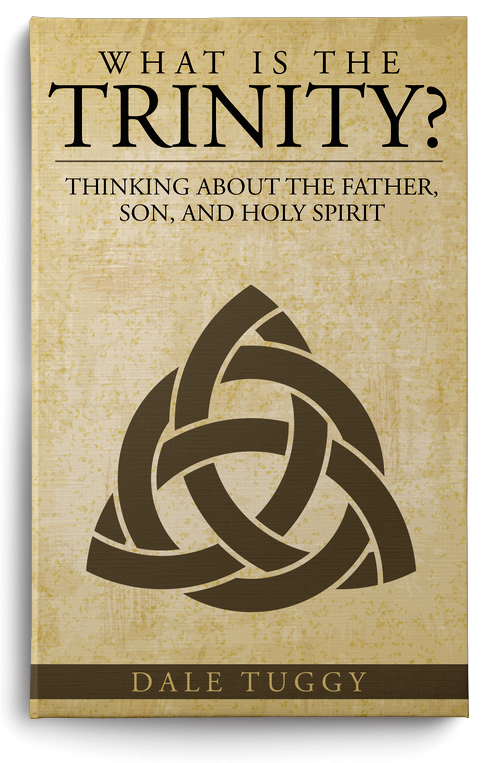
Please don’t take this personally, but in all likelihood, I’m not willing to debate you. I can only do so much with my time, and I am always over-committed. Also, I have to think you’re a worthy opponent. There have to be things I deeply respect about you and about your scholarly work. Most likely, though not necessarily, you will have a PhD in some relevant field and some relevant professional publications in philosophy or theology journals. So don’t get your hopes up. Still, if you were thinking about debating me, or just refuting me – here are some things you should study.

Absolute required reading: What is the Trinity? and “Trinity.” These will help you to understand why I’m going to ask you to clarify what Trinity theory you’re defending, or why I won’t allow you to smudge the difference between a Trinity theory and a claim that “Jesus is God” or that he is divine. (More on these below.) And if we are debating the Trinity, you will have to explain (at least) these six facts, facts which trinitarians who assume that Christians have always been trinitarian have heretofore not been able to account for. (See also here.)
I’m not going to be impressed if you urge that John 17:1-3 doesn’t say that only the Father is the only true God. (See also here.)
I will object if you argue that when a NT author says that Jesus fulfills some OT prophecy that was originally about Yahweh, this is the author’s way of saying that Jesus is Yahweh. I explain this fulfillment fallacy here and here and here. It is a beginner’s mistake in reading the NT, not any kind of deep insight, despite being endorsed by an embarrassing number of recent evangelical scholars.
Are you going to hit me with Richard Bauckham’s confused and confusing neologisms about “divine identity”? I really wish you wouldn’t, but if you must, you’ll want to read the published critique he’s been ignoring since before it was published, and also this and this.

You should think this is a sound argument. If you think a premise is false, you should have a strong reason to give for that claim, because as I explain here and in follow-up posts and podcast episodes, there are strong reasons for a Christian to agree with each premise. Evangelical apologists have been almost to a man ignoring this argument for years now, to their shame. Don’t join their ranks! If you’re unclear what a “sound” argument is, consult standard sources, like this.
These two talks explain why I will not be impressed with the points that Jesus is referred to as “God” and as “Lord” in the NT. In short, those terms are ambiguous in the NT, and these usages are not at all a way of hinting that Jesus “is God.” These authors never confuse Jesus and God.
“But Jesus is worshiped!” Yes, he is and he should be, but this is not a problem for biblical unitarian theology. Here’s a problem for trinitarians: justifying the speculative claim that one should only worship someone if they have the divine nature or essence. It’s neither self-evident nor is it found in the Bible. It’s only an inference from post-biblical catholic traditions. In this talk below (or in this podcast) I explain why I worship Jesus without embarrassment, even though I don’t confuse him with God and do not think he “has a divine nature,” and why this isn’t idolatry, by NT standards. In brief: I go back to the original justification for worshiping the exalted Lord Jesus.
Two natures theories about Christ are and always have been… to put it nicely, difficult, and it is not true there is some straightforward New Testament teaching here which is been the same from the beginning. For a historical overview of the speculations that led to Christ being called one Person in two natures, please see this, which distills a lot of information from a college course I have taught on the development of incarnation theories in Christian theology:
Notice that back then (from Origen on) most of them did not construe the “natures” merely as essential properties – also see podcasts 143 and 144. But if we go with that properties interpretation of the “natures,” here are some problematic properties which are arguably essential to God which seem like they cannot be essential to any human: uncreatedness, aseity, omniscience, omnipotence, immunity to temptation, immortality/immunity to death. Yes, one can try to go the way of recent kenosis theories, but these go against Chalcedonian tradition and really have no New Testament support, with Philippians 2 being the only passage that even kind of sort of sounds like that.
Apologists and others treat appeal to “two natures” as a sort of one-size-fits-all solution to looming christological contradictions. How can Jesus have a god if he is God? Two natures! How can he be created and uncreated? Two natures! How can he know all yet be limited in knowledge? Two natures! How can he be immortal and yet die? Two natures.
I am convinced that there is a lot of hand-waving and fakery here. I’m not going to stand idly by and let you assert that appeal to two natures solves the problem at hand. I’m going to press you to explain how it actually solves that problem without creating christological problems which are just as bad. For a preview of that:
(Click through the slides linked near the bottom to follow this.)
But isn’t preexistence still a slam-dunk as far as the NT is concerned? Surprisingly, no!
(For a bit more on John see podcast 70.)
And if we are debating the Trinity or “the deity of Christ,” I will be pointing out that if Jesus existed before his human life, it does not follow that he is one of three “Persons” in the triune God, or even that he is divine. In fact, people held such theories for about two centuries before it was popular to say that the Word is divine in the same way the Father is, and more than two centuries before confession of a triune God was made mandatory. If you are going to trot out standard apologists’ lists of early “fathers” calling Jesus “God” or “a god,” I will be pointing out that monarchians aside, they all held that Jesus (or the Word) was a lesser divine being, and that none of them so much as mention any triune God, at any time before the second half of the 300s. Propagandistic historical narratives, anarchonistic readings of the Bible, and sophistical traditional catholic arguments must yield to knowable historical facts. You don’t have to be a philosopher to debate me, but it will help if you aren’t scared by analytic philosophy, and if you have a healthy respect for honest history and for careful, charitable, non-anachronistic reading of historical works.
Here below is more against confusing Jesus with God, and untangling some common point-missing re: John 17 and John 20. You’ll have to be patient and work with the logic here. If you think logic should not be used in theology, I will not be interested in debating you. To me, use of logic is just due diligence in careful, critical reflection on divine revelation (loving God with all one’s mind), and use of clear, refutable arguments is a sign of humility and intellectual honesty, not of some sin called “rationalism.” It is the arrogant speculator who is offended at the very idea that he should have to submit to reason.
Want to try to prove the Trinity apart from the Bible, using reason alone, arguing that God wouldn’t be perfectly loving unless God is multiple Persons? Really, it’s a bad idea, as I explain here and also in a forthcoming co-authored paper.
I’m probably leaving some things out, but I think this will give you plenty to chew on. To refute or debate me you will need to do more than to point out standard proof-texts or gesture at a vague idea of an argument for the Trinity or for the deity of Christ.

Can you site here “all” of your arguments/articles about ireneaus ?
As in “all”, understand
Tnx
And
How about ireneaus said, “jesus is not a mere man…..” ?
I haven’t written much about Irenaeus. Of course, as a logos theorist he would deny that Jesus is a “mere man.” And yet, he also thinks that the one God is the Father, not the Trinity, and he doesn’t think that the Son is divine to the same degree that the Father is. I discuss some relevant texts here: https://trinities.org/blog/the-lost-early-history-of-unitarian-christian-theology/
im sorry mr. dale, but irenaeus said,
“Jesus Christ was not a mere man, begotten from Joseph in the ordinary course of nature, but was very God, begotten of the Father most high, and very man, born of the Virgin.”
Right, “very God” means that he was divine. Still, as I point out in my lecture, he thinks that the unique God is the Father, and says clearly that Jesus knows less than he does. So apparently the Son is not divine in the same way that God is.
Nope, “very God” also means “true God”
But i have a question
Where did irenaeus say “Jesus is not God” ?
Yes, and “true God” in this context means truly divine. Irenaeus, like other Logos theologians, thinks that the one true God is the Father. He thinks that the Word is another being, also divine, but not the degree that the Father is divine. This is clearly stated in the texts I discuss in my talk I already linked for you. Providing quotes from Irenaeus or other Logos theologians in which they called the Word “God” is missing the point. They thought two (or three or more) different beings could be called “God”! Yet various among them call the Word “a second god” (or “a second ‘God'” – they don’t distinguish these, although we should). Others say that God and the Word are “two in number.” Don’t waste our time by linking shallow apologetics articles; read these authors in depth, carefully.
True God means truly divine based on your interpretation in irenaeus quote
So where did irenaeus deny the deity of christ ?
Sorry mr. Dale but irenaeus does not fit unitarianism now because irenaeus “thinks that the word is another being”
Sorry mr. Dale but irenaeus does not fit unitarianism now because irenaeus “thinks that the word is another being”
Slr
give me a quote that irenaeus denies the deity of christ
True means truly divine in your own interpretation
True God means truly divine based on your interpretation in irenaeus quote
So where did irenaeus deny the deity of christ ?
Sorry mr. Dale but there is a difference between the word “God” and “divine”.
your response is made from your own interpretation and opinion
By the way, i post another quote from irenaeus
Im sorry if i have mistake
But true God or truly divine means true God, nothing changes
Unless irenaeus says, “jesus is not God
Peace
…But that He is Himself in His own right, beyond all men who ever lived, God, and Lord, and King Eternal, and the Incarnate Word, proclaimed by all the prophets, the apostles, and by the Spirit Himself, may be seen by all who have attained to even a small portion of the truth.
https://www.str.org/blog/nine-early-church-fathers-who-taught-jesus-god
http://www.newadvent.org/fathers/0103319.htm
Comments are closed.